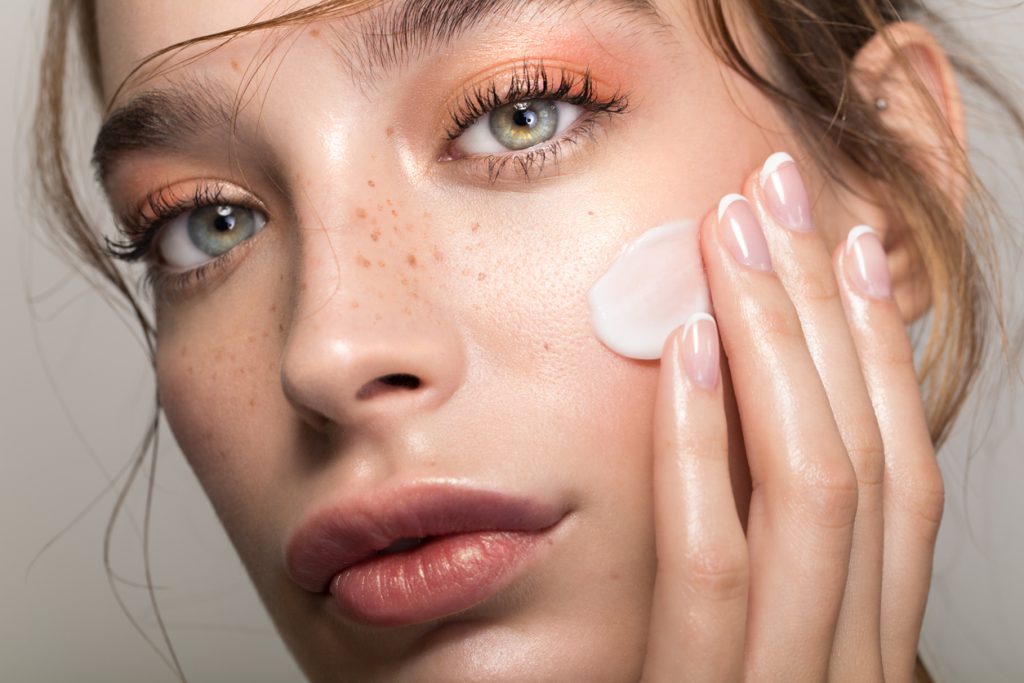Are freckles genetic?

Some people are genetically predisposed to develop freckles. People with light skin and red or blonde hair are more likely than others to have them. Freckles are a form of hyperpigmentation that occurs as a natural defense mechanism again sun damage. As a result, they don’t tend to appear before age two.
How are freckles passed on?
Freckles are associated with a variant of a gene called MC1R. MC1R alerts the body when exposed to harmful UV radiation is taking place. This is a dominant gene, meaning anyone with at least one copy of the freckle variant from either parent will have freckles.
Are freckles permanent?
Some freckles diminish and disappear over time. Others are always present but may fade in winter and be most prominent in summer, when UV exposure is higher. As a general rule, most freckles will tend to last for months or years once they develop.
Are freckles bad?
Freckles are not dangerous and do not point to an underlying medical problem. Still, people who have freckles are more susceptible to UV-related skin damage than others. They should wear sunscreen and a hat when out in direct sunlight and minimize sun exposure overall.
Can freckles show up later in life?
Yes. Freckles can appear at any time in life for someone with the appropriate gene. In general, freckles are more likely to fade in color as a person ages. Some freckles may disappear entirely. However, new freckles are always possible.
What are freckles a sign of?
Freckles do not denote an underlying health problem. They are just an expression of the MC1R gene. Their presence suggests that the person should be cautious about long-term sun exposure.
Can you permanently remove freckles?
Yes. There are several treatments that can remove freckles. Over long periods of time, avoiding sun exposure and using sunscreen can cause some freckles to disappear. However, completely removing freckles usually requires medical treatment.
There are three main courses of treatment for freckle removal:
Laser Therapy
Laser treatment uses focused pulses of intense light to target damaged areas of skin. For most patients, this treatment causes significant lightening of freckles in the affected area. Patients should be aware of minor side effects like itching, redness, and swelling.
Cryosurgery
Cryosurgery uses liquid nitrogen to focus extreme cold on skin imperfections. In addition to freckles, it can be used for a variety of other issues, like skin tags. Cryosurgery is highly safe and does not require any recovery time. Risk of scarring is very low.
Topical Therapy
There are several different types of topical fading cream available over the counter. Many of these products are believed to lighten skin by suppressing melanin production. Some high-potency treatments are available by prescription, including ultraviolet-absorbing retinoid creams.
Will my freckles ever go away?
In all likelihood, freckles will fade in color over time. Some may go away.
Will my child have freckles?
Because the MC1R gene variant that causes freckles is dominant, a child with at least one parent who has freckles is very likely to also have freckles. Freckles become less predictable in cases where other relatives (such as grandparents) have them, but parents do not.
Is a new freckle dangerous?
New freckles are not dangerous. They commonly occur in the summer for anyone with freckles. However, you should be careful to examine any new skin discoloration or growth closely. What appears to be a freckle at first may be another kind of skin marking.
To learn more, make an appointment today with the Florida Academic Dermatology Center. Our dermatologists deliver compassionate care in our state-of-the-art center and will recommend the best treatments to help you reach your skincare goals.